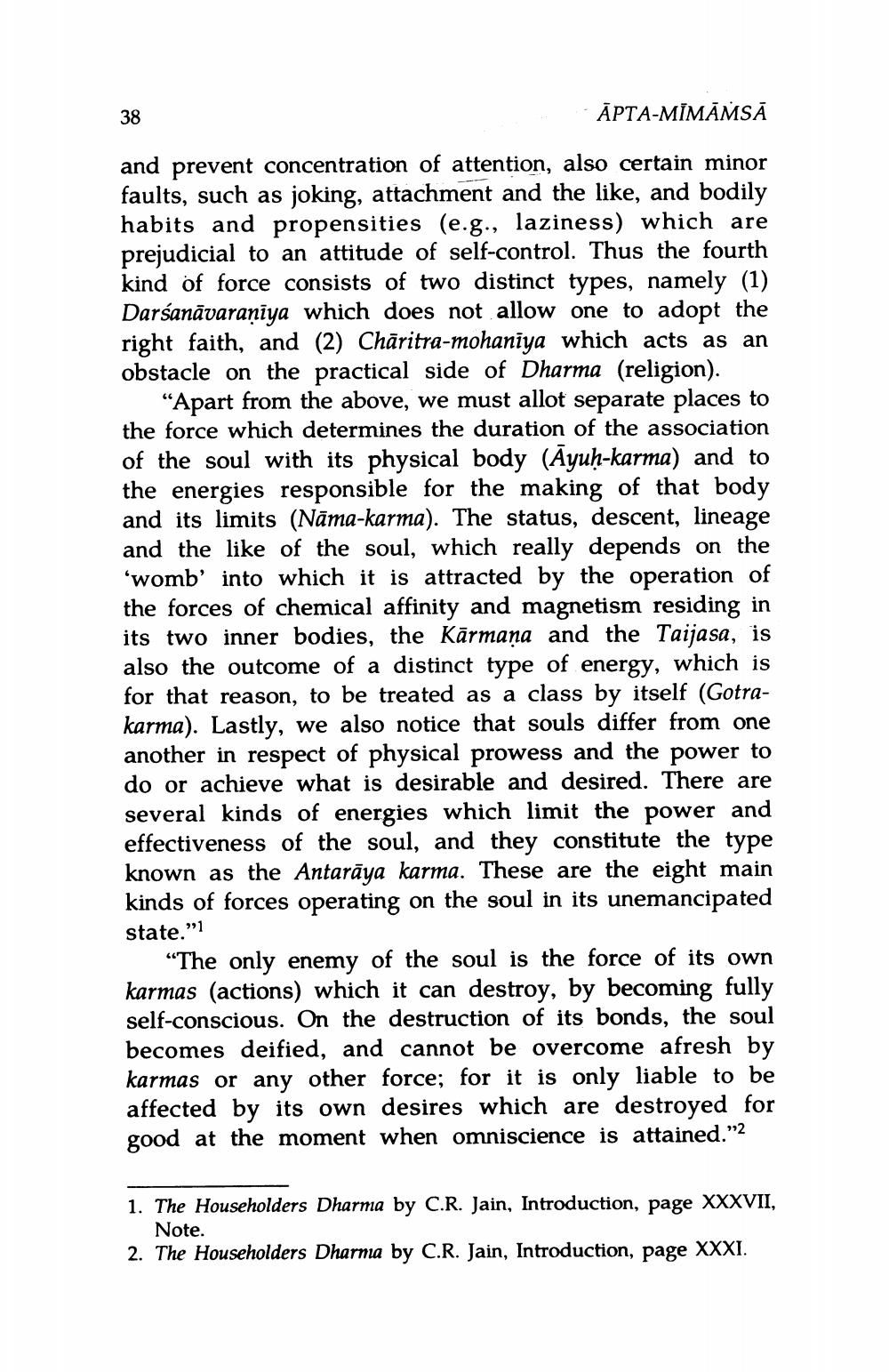________________
38
- ĀPTA-MĪMĀMSĀ
and prevent concentration of attention, also certain minor faults, such as joking, attachment and the like, and bodily habits and propensities (e.g., laziness) which are prejudicial to an attitude of self-control. Thus the fourth kind of force consists of two distinct types, namely (1) Darsanāvaraṇīya which does not allow one to adopt the right faith, and (2) Chāritra-mohaniya which acts as an obstacle on the practical side of Dharma (religion).
“Apart from the above, we must allot separate places to the force which determines the duration of the association of the soul with its physical body (Ayuḥ-karma) and to the energies responsible for the making of that body and its limits (Nāma-karma). The status, descent, lineage and the like of the soul, which really depends on the 'womb' into which it is attracted by the operation of the forces of chemical affinity and magnetism residing in its two inner bodies, the Kārmaņa and the Taijasa, is also the outcome of a distinct type of energy, which is for that reason, to be treated as a class by itself (Gotrakarma). Lastly, we also notice that souls differ from one another in respect of physical prowess and the power to do or achieve what is desirable and desired. There are several kinds of energies which limit the power and effectiveness of the soul, and they constitute the type known as the Antarāya karma. These are the eight main kinds of forces operating on the soul in its unemancipated state.”1
“The only enemy of the soul is the force of its own karmas (actions) which it can destroy, by becoming fully self-conscious. On the destruction of its bonds, the soul becomes deified, and cannot be overcome afresh by karmas or any other force; for it is only liable to be affected by its own desires which are destroyed for good at the moment when omniscience is attained.”
1. The Householders Dharma by C.R. Jain, Introduction, page XXXVII,
Note. 2. The Householders Dharma by C.R. Jain, Introduction, page XXXI.




